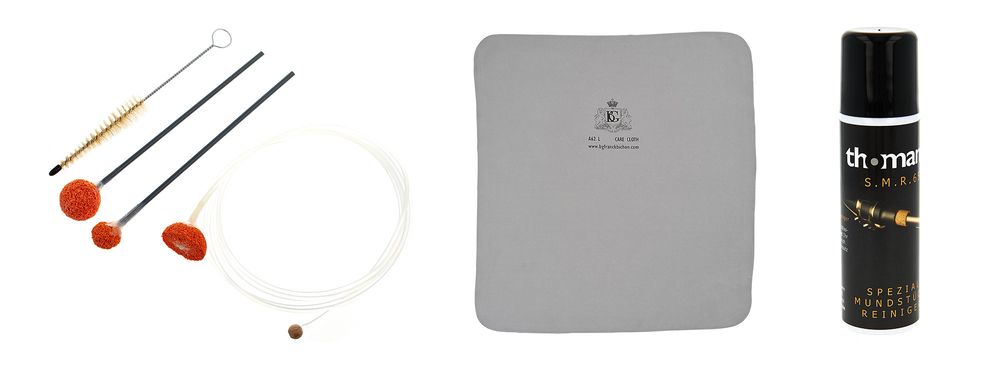7. Care
In this respect, there is no difference between tenor and baritone horns, or between these and other brass wind instruments. They all require conscientious.
After every use, not only on the high holidays.
The valves are very important here. They won't grease themselves, and if you fail to grease them, they will work with greater and greater difficulty - or not at all! This becomes especially apparent if you take a longer hiatus from playing. Put a drop of oil on the axes and moveable joints of the mechanism every few weeks. Since we are talking a horn and not a salad, you'll need something else than salad oil as well. Everything else will be detrimental to the instrument's playability. If you are not sure which oil or grease to use, ask your teacher or a specialised dealer.
Special brushes and wipers are available for the mouthpiece. Ideally, it should be cleaned after every use. Every now and then the mouthpiece should also be held unter running water and cleaned with a brush. The same should also be done to the entire body, but much, much, less often. This first involves removing several parts, however, and should only be carried out by players with some experience.
Besides this in-depth cleaning, the instrument should generally be cleaned after every use, and a special spiral brush which can get into the last nook and cranny of your instrument is an indispensable part of your maintenance set. Regular cleaning helps you avoid unpleasant surprises. If at all possible, don't keep your instrument in its case at all times; kept outside, humidity inside your horn can much better evaporate. You should also wipe your instrument's exterior with a soft cloth after every use. This prevents aggressive sweat and dirt from attacking the varnish.
Overall, you do not need a great number of cleaning products. But your set should absolutely include a mouthpiece brush, spiral cleaner, valve grease, cleaning product for the exterior and a soft cloth for cleaning.


